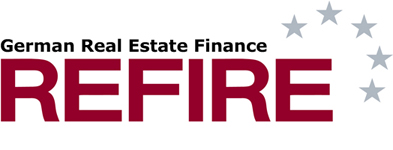A new analysis by the online property portal ImmoScout24 shows the year-on-year development in supply and demand and rental prices for retail space in Germany’s Top 7 cities, 14 secondary cities and 22 tertiary cities (the A to C-grade cities) up to April 2021. There is an overall increase in demand, increasing shortage of space and a hike in rental prices, but there are variances across the cities and size categories.
Demand is returning in Germany’s Top 7 cities, which were most impacted by the onset of the pandemic. Demand was 100% higher than 12 months previously but there was also significant growth of 133% and 80% in the B and C cities.
Demand is tending to focus on smaller areas of retail space. The portal registered a massive 134% increase in enquiries for space in the <100 m² size category but there was also increased interest in space in the 100 – 500 m² segment (100%) and in the larger category (78%).
There is now 14% less retail space available across the A to C-grade cities, ranging from a downturn of -24% in the B cities to -7% in the Top 7 cities. The low vacancy level and lack of tenant rollover have resulted in a shortage of available space. The exception has been in the >500 m² size category where availability has risen by 12% year-on-year.
Average asking rents across the A to C-grade cities have risen by 6.4% to €16.29/m²/month. The biggest hike over the last year was in the Top 7 cities with a rise of 11% to an average of €20.45. By contrast rents in the C-grade cities fell by 3.2% to €13.03. The largest size category (>500 m²) has been the most resilient and asking rents for food stores, drug stores and DIY stores/garden centres rose by 15.1% to an average of €11.87/m²/month.
Managing director Dr. Thomas Schroeter says that the proposed easing of lockdown measures has resulted in the return of optimism and renting retail space is again financially viable, resulting in increased demand. He says the shortfall of retail space is a good sign overall. Although most shops remained closed over the last few months, there are actually few vacant shops in the major cities. He expects to see catch-up effects with the return of retail demand and the reduction of lockdown restrictions. Landlords wanting to offer rental space have been reluctant to advertise due to the ongoing uncertainties, but these will now be back in the market.
The big winners over the last few months have been the logistics micro hubs in Germany’s major cities. The booming online segment and the increase in demand for same day delivery has boosted demand for suitable logistics space in the city centres, says Schroeter.
ImmoScout24 registered a 44% increase in demand for warehouse space in the major cities. Demand for micro hubs (logistics properties up to 3,000 m²) rose by 42% whilst the supply of space fell by 19%. The strong demand combined with the scarcity of supply has resulted in an increase in rents of 4.8% to an average of €5.07. Asking rents for medium to large areas remained stable at between €4.29 and €4.59/m²/month.

